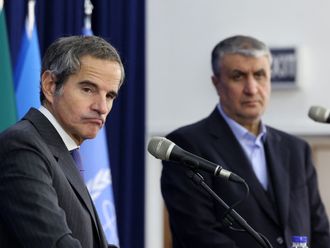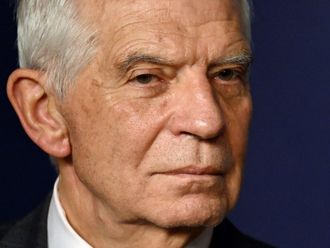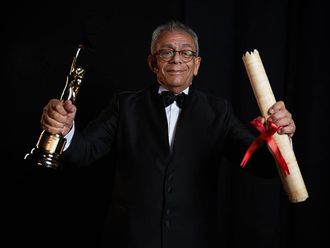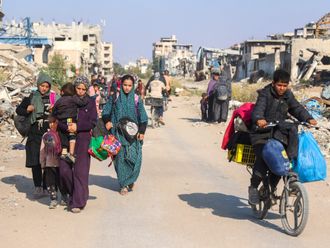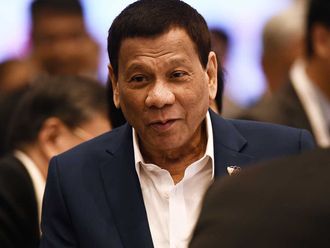Istanbul: After an eight-day tug of war for control and with no clear winner, Syria’s opposition looks set to become more divided than ever.
On the ground, rebels fighting President Bashar Al Assad’s regime and activists say they have lost faith in foreign-based dissidents who appear powerless to check army advances.
The opposition National Coalition concluded an extended meeting in Turkey on Friday that saw Qatari- and Saudi-backed dissidents reach a last-minute compromise brokered under intense pressure.
After hours of bickering, Coalition chief George Sabra announced an expansion of the group to include 51 new members, taking the total to 114.
To date, the Coalition has been dominated by the Qatar-backed Muslim Brotherhood, but regional powerhouse Saudi Arabia is seeking to downsize that influence.
Of the new members, some 10 are affiliated to veteran secular dissident Michel Kilo, whose bid to enter the umbrella Coalition was backed by Riyadh.
“We have reached a compromise solution. While [Kilo’s list] has entered the group, the Coalition has also expanded to include 14 grassroots activists,” Coalition member Salem Al Moslet told AFP.
“We wanted to be more representative. The meeting was too long, but we are on the right track,” he added.
Another 15 seats have been assigned to civilian members of the mainstream rebel Free Syrian Army command, which is also dominated by Saudi Arabia.
But the result of more than a week of back and forth in the Istanbul tug-of-war looks to be an unsteady balance.
Coalition members and officials from countries that back the anti-Al Assad revolt believe the conclusion was a success overall, however.
“Our mission is more or less accomplished, even though it was quite painful,” one Western diplomat told AFP on condition of anonymity.
The Coalition will now be able to elect a new leadership and discuss a US-Russian peace initiative, the diplomat said, adding that it will be “two to three weeks” before the group holds its next meeting.
But while disputes raged among Saudi- and Qatari-backed dissidents in Turkey, across the border in Syria Al Assad loyalists were advancing, squeezing the Coalition’s credibility in the war-torn country to a new low.
In Kafranbel in northwestern Syria, activists raised a placard during a protest on Friday that accused the Coalition of being “part of the problem”.
After months of rebel dominance east of Damascus and in central Syria’s Qusayr, troops backed by Lebanon’s Shiite Hezbollah movement last week launched an assault to reclaim control of the key town.
Scores of fighters on both sides have been killed, and Qusayr has all but fallen into army hands.
But as the opposition closed its Istanbul meeting, news broke of the arrival of “hundreds” of Muslim Brotherhood-linked rebel reinforcements in Qusayr.
One activist questioned the new rebels’ timely arrival.
“I don’t believe in coincidences,” said Fares, an independent Syrian activist in Istanbul.
“I think the rebels were given the weapons they needed to enter Qusayr, and they were given a sign the [Qatari- and Saudi-backed] sides had reached an agreement.”
“The biggest problem is all these disputes could have been solved a week ago,” he added.
A rebel from central Syria slammed the Coalition for being far removed from those at the sharp end.
“They are disconnected. We cannot support people who have become opponents just for personal gain,” said Ali Sattuf, a former army lieutenant who joined the revolt in May 2012.
“We don’t want one selfish regime to replace another,” he added.
Another defector, Omar Ferzat, said: “We need support, and the Coalition is not channelling the right help to us.”
Anti-Al Assad dissidents inside Syria will only gain trust in the Coalition if its members themselves move into the country, he added.
“Here in the hotel, they can do no good,” Ferzat said.


